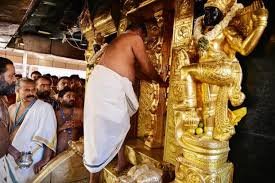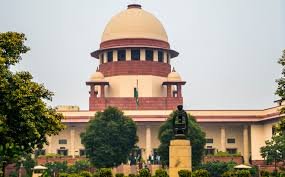Despite a stormy debate stretching past midnight, the Waqf Amendment Bill secured passage in the Lok Sabha with a government majority. Key changes include non-Muslim members on Waqf boards and revised rules for donating and claiming Waqf properties.
BY PC Bureau
New Delhi: The Lok Sabha passed the Waqf Amendment Bill early Thursday morning, concluding a marathon 12-hour debate that stretched past midnight. Despite strong opposition, the government’s numerical majority ensured the bill’s passage with 288 votes in favor and 232 against, around 2 am. The proposed legislation, which seeks to amend the 1995 law governing Waqf properties, is slated to be tabled in the Rajya Sabha later today.
The amended bill contains several contentious provisions that sparked intense debate. These include the mandatory inclusion of at least two non-Muslim members in both the Central Waqf Council and state Waqf Boards. The legislation also stipulates that only individuals who have practiced Islam for a minimum of five years will be eligible to donate properties to Waqf. Furthermore, a significant alteration proposes that government-owned properties identified as Waqf will no longer belong to the Waqf, with the local Collector tasked with determining their ownership.
The Opposition parties vehemently opposed the bill, arguing that their suggestions submitted to the Joint Parliamentary Committee, which was formed to examine the legislation, were not adequately considered. They further contended that the bill is unconstitutional and an infringement upon the rights of minorities.
ALSO READ: China Imparts Military Training to Tibetan Children
The Congress party launched a scathing attack, accusing the government of attempting to “defame (and) disenfranchise minorities” and orchestrating a “4D assault on the Constitution.” AIMIM chief Asaduddin Owaisi staged a symbolic protest during the debate, stating he was “tearing up the law like Mahatma Gandhi did” with British law in South Africa.
ALSO READ:
#LokSabha passes The Waqf (Amendment) Bill, 2025 and The Mussalman Wakf (Repeal) Bill, 2024.
The bill amends the Waqf Act, 1995.
The bill repeals the Mussalman Wakf Act, 1923.#WaqfAmendmentBill #WaqfBill #WaqfBoard #Waqf pic.twitter.com/M5TxwJ3XSa
— SansadTV (@sansad_tv) April 2, 2025
Conversely, the government maintained that the bill is solely concerned with the proper management of Waqf properties and has no religious agenda. Union ministers asserted that vast tracts of land and properties had been improperly taken over by Waqf entities, allegedly facilitated by the Congress party’s “appeasement politics.” They argued that widespread irregularities had prevented Waqf properties from benefiting intended beneficiaries, particularly women and children, and that the amended law would rectify these issues. The BJP also stated that the Waqf bill was formulated after extensive consultations with a diverse section of the population and has garnered support from non-Muslim minorities.
Speaking in support of the bill, Home Minister Amit Shah presented a lengthy list of properties that he claimed were wrongly designated as Waqf, including land belonging to temples, other religious groups, and the government. “Properties in (Delhi’s) Lutyens zone went to Waqf, and they started taking over government land… In Tamil Nadu, a 400-year-old temple property was declared as Waqf’s. Land for a five-star establishment was given to Waqf for ₹12,000 a month… Several properties belonging to different religions were declared as Waqf property, including Chandra Shekhar Azad Park in Prayagraj,” he stated. He further emphasized, “You cannot donate someone else’s property. You donate something which is yours.”
ALSO READ: Trump Slaps Massive Tariffs on India, Cites Trade Imbalance
While introducing the bill, Union Minister Kiren Rijiju referenced a long-standing legal case in Delhi involving numerous properties, including the old Parliament building, which had been claimed by the Delhi Waqf Board. “If we had not introduced this amendment today, even the building we are sitting in could have been claimed as Waqf property,” he asserted.
Pointing blame at the Congress, Amit Shah argued that if the Waqf Act had not been amended in 2013, the current legislation would not have been necessary. “In 2013, the extreme Wakf law was made overnight for the purpose of appeasement. As a result, 123 properties in Delhi’s Lutyens zone were handed over to the Waqf just 25 days before the elections,” he claimed. He also refuted the Opposition’s claims regarding the inclusion of non-Muslims in Waqf boards overseeing religious properties, stating, “Those who take care of religious property, in that board, non-Muslims won’t be in that. We don’t want to even interfere there. The Opposition is trying to scare the minority and build their vote banks.”
#WaqfAmendmentBill passed in Lok Sabha with just a 56-vote difference. Congress MP @GauravGogoiAsm says, We will continue to fight to protect the Constitution and minority rights… pic.twitter.com/UdWLMLxW1g
— Ƥʀᴀɴᴊᴀʟ কলিতা (@PranjaLxKalita) April 2, 2025
Responding to the government’s arguments, Congress MP Gaurav Gogoi delivered a strong rebuttal, labeling the bill an “assault on the Constitution” with the aim to “dilute the Constitution, defame and disenfranchise minorities… divide Indian society.” He questioned the timing and origin of the bill, stating, “In 2023, four meetings of the Minority Commission were held, and yet, there was no mention of the need for a Waqf amendment bill. I ask the government – was this bill drafted by the Minority Affairs Ministry or some other department?”
Shiromani Akali Dal MP Harsimrat Kaur Badal also launched a fierce critique, accusing the Centre of attempting to divide minorities. “The party which does not have a single Muslim member (in Parliament), how is it that are remembering the Muslims today? The party which relies on polarisation, how did they remember the Muslims today?” she questioned. She further added, “Twenty seven percent of the (Waqf) properties are in Uttar Pradesh, which will vote after 1.5 years. You have demolished our historic gurudwara and developed Ayodhya. Had your intention been good then you would have included a Muslim member in the Ayodhya committee. You are breaking every minority. You are the Tukde Tukde gang.”
Key provisions of the amended Waqf Bill include:
- Trusts created by Muslims under any law will no longer be automatically considered Waqf.
- Only practicing Muslims (for at least five years) can dedicate their property to Waqf, reverting to pre-2013 rules.
- Women must receive their inheritance rights before a property can be declared Waqf, with specific provisions for widows, divorced women, and orphans.
- An officer above the rank of Collector will investigate government properties claimed as Waqf.
- In case of disputes over ownership, a senior government official will have the final say, replacing the existing Waqf tribunal system for such matters.
- Non-Muslim members will be included in central and state Waqf boards to promote inclusivity.
The All India Muslim Personal Law Board has announced its intention to challenge the Waqf (Amendment) Bill in court, vowing to organize nationwide protests similar to those by farmers and to explore all peaceful means of opposition, including potential road blockades.














